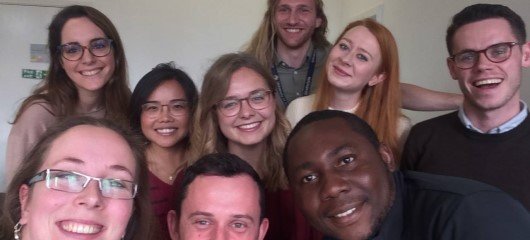Our PhD programme
We pride ourselves in nurturing a stimulating research environment and have a track-record in hosting an international cohort of excellent PhD candidates. We provide a thought provocative research culture through cutting edge environmental legal scholarship that SCELG has developed across different thematic areas and a plurality of legal theories and methodologies.
As a PhD candidate you are an integral part of the SCELG community benefitting directly from our supportive and collaborative research culture. We organise tailored events for our PhD community, such as, the annual PhD Colloquium on environmental law and governance, seminars where you can discuss work in progress with your peers, writing and academic coaching retreats, and reading groups.
You also have access to legal research methods training and skills development organised by the law school or the Scottish Graduate School of Social Sciences or the Scottish Graduate School of Arts and Humanities. Uniquely, as a member of the Humanities and Social Science (HASS) Graduate School you can interact and learn from your peers in other disciplines, and we encourage cross-disciplinary activities and collaboration.
SCELG hosts a thriving PhD community and through our extensive alumni network across academia, international institutions, NGOs, and advocacy groups you are part of a growing community of progressive scholars who are making a difference on the ground through their research.
As SCELG has a track-record of hosting funded academic research and consultancy projects, you also have the unique opportunity to bring about change and provide impact with your research across different areas of global environmental law which include ocean and outer space governance, Rights of Nature, climate change, and biodiversity law.
Some of our PhD candidates’ research is funded by the UKRI, and we also offer the opportunity to apply for University or Faculty funding. the next generation of influential environmental lawyers and scholars. If you would like to have more information about PhD opportunities in SCELG, please contact Dr Saskia Vermeylen saskia.vermeylen@strath.ac.uk


